The Role of Technology in Modern Healthcare
The rapid advancement of technology has transformed the healthcare industry, enhancing patient care, improving medical outcomes, and streamlining healthcare delivery. From electronic health records (EHRs) and telemedicine to artificial intelligence (AI) and robotic-assisted surgeries, technology has revolutionized how medical services are provided.
Patients now benefit from easier access to their medical records, real-time health monitoring, and virtual consultations. Telemedicine has removed geographical barriers, allowing patients to consult doctors remotely, improving access to healthcare. Wearable devices track vital signs, enabling early detection of health issues and timely interventions. Robot-assisted surgeries offer greater precision, minimally invasive procedures, and faster recovery times compared to traditional surgical methods. These advancements have significantly improved the accuracy of treatments and enhanced overall patient satisfaction.
Also read – Telemedicine in India: Tech-Driven Democratization of Healthcare
In essence, technological integration in healthcare has made medical services more accessible, efficient, and patient-centered, contributing to a more advanced and effective healthcare ecosystem.
Top 5 Technologically Advanced Hospitals in Delhi
Delhi is home to some of the most technologically advanced hospitals in India, setting benchmarks in medical innovation, patient care, and research. These institutions are leveraging artificial intelligence (AI), robotic-assisted surgeries, and state-of-the-art diagnostic tools to enhance treatment accuracy and operational efficiency.
Here’s a look at the five hospitals in Delhi leading the technological revolution in healthcare.
1. AIIMS (All India Institute of Medical Sciences): Pioneering AI in Healthcare
AIIMS has long been a leader in medical research, education, and patient care, and its adoption of AI-driven healthcare solutions further cements its reputation. The hospital recently established a Centre of Excellence for Artificial Intelligence in Healthcare under the Ministry of Health and Family Welfare (MoHFW). This initiative focuses on developing AI-based tools for diagnosing chest X-rays, early detection of diabetic retinopathy, and identifying skin lesions.
Beyond AI, AIIMS is also emerging as a premier robotic surgery training center equipped with advanced robotic surgery systems to train surgeons in minimally invasive techniques. The institution is also managing over 900 research projects funded by both national and international agencies and has significantly expanded its inpatient capacity by increasing hospital beds, intensive care units, and operation theatres.
Also check – We are focusing on emerging technologies like Robotics, Analytics and AI-based tools at AIIMS
2. Fortis Healthcare: Advancing Robotic Surgery
Fortis Healthcare has consistently embraced medical technology to enhance surgical precision and patient care. Fortis Escorts Heart Institute in Delhi recently introduced an advanced surgical robot for gastrointestinal (GI), urology, and cardiothoracic and vascular surgeries (CTVS). This next-generation robotic system enables greater precision, minimal invasiveness, and faster recovery times, significantly improving surgical outcomes.
The robotic surgery system was inaugurated by former Union Minister Smriti Irani, who lauded Fortis for its commitment to adopting cutting-edge medical innovations. The hospital’s real-time patient monitoring systems and AI-powered diagnostic tools also contribute to improving treatment precision and patient care.
3. Max Healthcare: AI-Integrated Robotic Surgery
Max Healthcare is at the forefront of integrating AI-driven robotic surgical systems to enhance surgical accuracy and patient safety. Max Super Speciality Hospital, Saket, has adopted Da Vinci Xi and Versius Robotic Surgery Systems, which allow for minimally invasive procedures with 3D vision, superior precision, and enhanced control. These systems are being used for complex surgeries like partial nephrectomy and radical prostatectomy.
Additionally, Max Healthcare has embraced data analytics and wearable health-monitoring devices to offer personalized healthcare solutions. The hospital’s focus on telemedicine and digital health records further streamlines patient care and operational efficiency.
Also read – BLK-Max Hospital Strengthens Robotic Surgical Program
4. Medanta – The Medicity: AI-Driven Clot Removal Technology
Medanta has made history by becoming the first hospital in India to introduce the Penumbra Lightning 12 F Catheter, an AI-powered device for treating pulmonary embolism. This groundbreaking technology facilitates selective clot removal while minimizing blood loss, significantly reducing complications such as anemia and expediting recovery.
Since its introduction in July 2023, Medanta has successfully treated over 25 cases of pulmonary embolism using this AI-assisted technology. The hospital has also launched the PEiRT (Pulmonary Embolism Interventions and Response Team) programme, aimed at raising awareness and improving treatment strategies for this life-threatening condition.
5. Apollo Hospitals: AI-Powered Medical Automation
Apollo Hospitals is investing heavily in AI-driven automation to enhance hospital efficiency and reduce the workload on doctors and nurses. The hospital network has allocated 3.5 per cent of its digital budget to AI over the past two years and plans to increase this investment further.
Apollo is leveraging AI to automate routine tasks such as medical documentation, boost diagnostic accuracy, predict complications, and enhance robotic-assisted surgeries. Its proton therapy and precision oncology programs have also positioned Apollo as a leader in advanced cancer treatment, offering targeted therapies that improve patient outcomes.
Shaping the Future of Healthcare with Technology
With AI, robotics, and data-driven solutions transforming healthcare, these hospitals are setting new benchmarks for medical excellence in India. From AI-powered diagnostics and robotic-assisted surgeries to real-time patient monitoring and telemedicine, these advancements are enhancing patient care, improving surgical outcomes, and streamlining hospital operations.
As healthcare technology continues to evolve, these institutions remain at the forefront, ensuring that India’s medical infrastructure keeps pace with global advancements. By integrating cutting-edge innovations, they are not only elevating the standard of care but also shaping the future of healthcare in the country.
Also Read – ‘Patient transportation management application is one of the most significant technological innovations at Apollo Hospital, Ahmedabad’



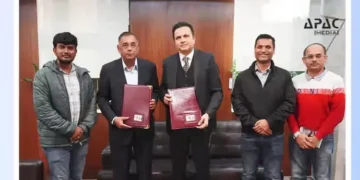

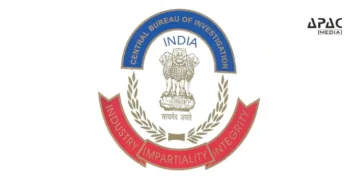



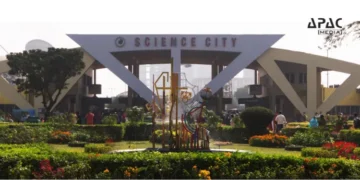





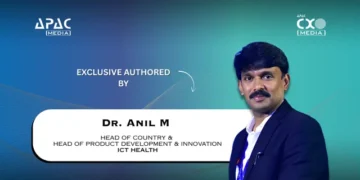



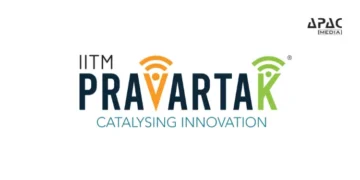













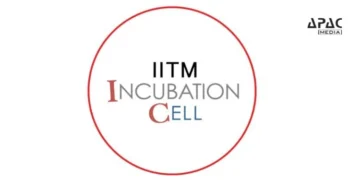


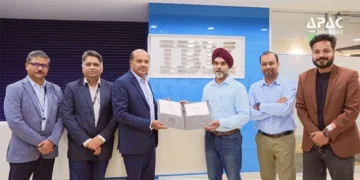

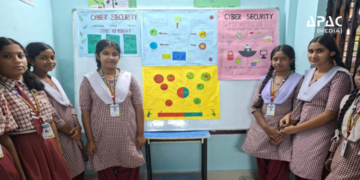



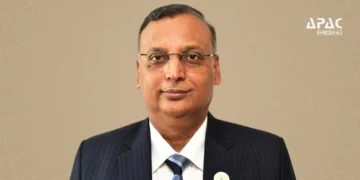







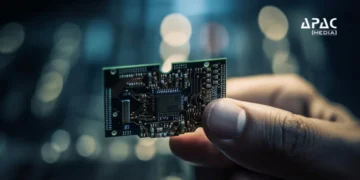






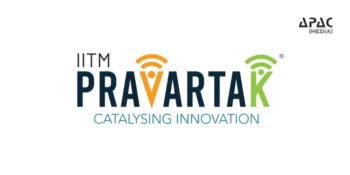
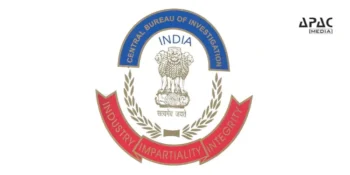







Discussion about this post